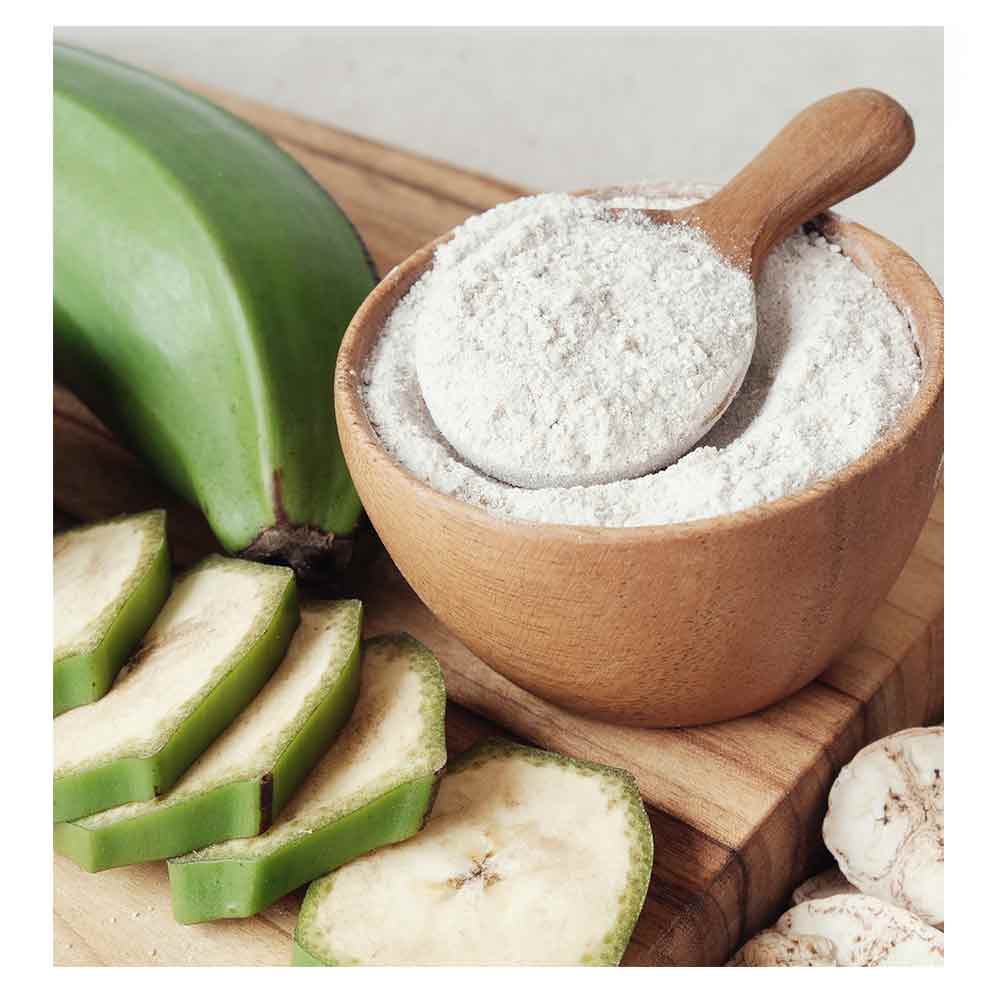Description
Origin:
Plantain flour is made from dried and ground plantains. It is a popular ingredient in West African cuisine, particularly in Nigeria and Ghana. Plantain flour is versatile and can be used in both sweet and savory dishes.
It is often used to make a variety of traditional meals, including plantain fufu and plantain pancakes
Other Names:
Yoruba: Elubo ogede
Igbo: Acha ogede
Hausa: Garin ayaba
Swahili: Unga wa ndizi
Health Benefits:
Rich in carbohydrates and dietary fiber, which helps maintain digestive health.
Contains essential minerals like potassium, beneficial for heart health.
Gluten-free and low in fat, making it a healthy alternative to wheat flour.
Nutritional Information (per 100g):
Calories: 315 kcal
Carbohydrates: 76 g
Protein: 2 g
Fat: 0.2 g
Fun Fact: Did you Know?
Speaking of vitamin B6, that a deficiency in that vitamin can increase symptoms of depression? Ditto for magnesium, so upping your intake of both combined can improve your mood. And of course, plantain flour contains both of these.
Uses:
Commonly used to make plantain fufu, which is eaten with soups.
Can be used in baking or as a thickener for soups and stews.
Recipes & Videos:
International Recipe: How to Make Plantain Fufu Video: How to Make Plantain Fufu
Local Recipe: Nigerian Plantain Flour Pancakes Video: Nigerian Plantain Flour Pancakes Recipe
Best Storage Method: Keep in an airtight container in a cool, dry place. For longer storage, refrigerate or freeze.
Shelf Life:
Room temperature: 6-12 months.
In the freezer: Up to 1 year.

 Cart is empty
Cart is empty 










Reviews
There are no reviews yet